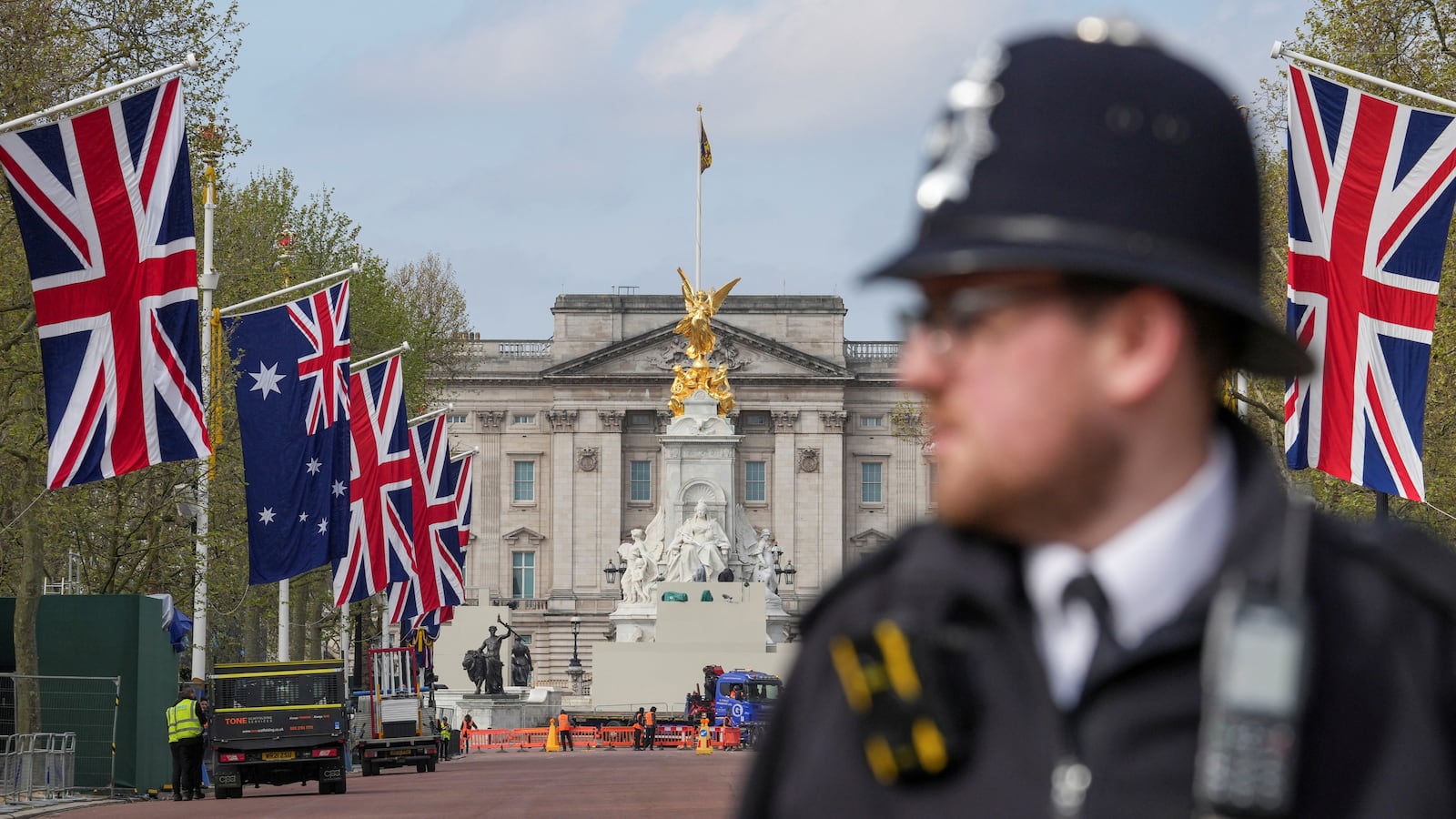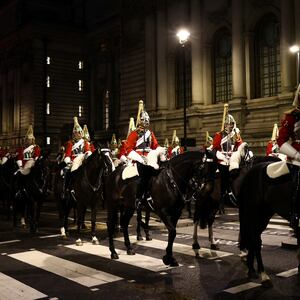Royalist is The Daily Beast’s newsletter for all things royal and Royal Family. Subscribe here to get it in your inbox every Sunday.
Members of an established anti-monarchy pressure group have been sent warning letters by the police in advance of the coronation, after long-gestating laws giving the police sweeping new powers to detain peaceful protesters were fast-tracked into law this week, and a senior Metropolitan Police officer warned they would have an “extremely low threshold for anybody or anything that will disrupt this event.”
The dramatic changes contained in the new Public Order Act include empowering police to stop and search protesters they suspect are setting out to cause “disruption.”
The right for police to stop and search individuals on mere suspicion has been hugely controversial in the U.K., with statistics showing such interventions disproportionately target non-white people.
The new act was given royal assent and signed into law by King Charles Tuesday, the Guardian reported, just hours before a man, understood to be mentally disturbed, threw shotgun cartridges over the fence of Buckingham Palace onto the building’s apron. He was arrested and a controlled explosion was carried out.
Speaking about the incident today, Metropolitan Police Deputy Assistant Commissioner Ade Adelekan said, according to the Daily Mail: “We’ve debriefed our plans after that incident just to make sure there are no gaps and we’re absolutely confident that we’ve got a plan that will deliver the coronation in such a manner that everyone will come to London and celebrate and there will be no issues whatsoever.”
Asked about how officers will deal with protesters, he said: “Our priority is around safety and security for everyone that’s going to come to this event, and we want to make sure that everyone enjoys it. We have an extremely low threshold for anybody or anything that will disrupt this event and what you will see is very swift action from us.”
The episode jangled nerves, but security minister, Tom Tugendhat, grilled about the incident and the new law on Wednesday morning, described the coronation as a “chance to showcase our liberty.”
However Graham Smith, chief executive of pressure group Republic, which is encouraging protestors to wave yellow placards bearing the words, “Not My King” on Saturday, told The Daily Beast that the arrival of official warning letters “sounds like intimidation.”
Tugendhat told BBC Radio 4 that the passing of the new laws this week was coincidental. The legislation is understood to have been primarily conceived to clear roads blocked by “Just Stop Oil” and other direct action protests and bans protestors from supergluing themselves and “locking on” to infrastructure.
Tugendhat said that people would “have the liberty to protest but they would not have the liberty to disrupt others. That’s where we’re drawing a difference,” adding, “The coronation is a chance for the United Kingdom to showcase our liberty and democracy, that’s what this security arrangement is doing.”
However Graham Smith told The Daily Beast in a statement: “We have been in direct contact with liaison officers and have met with senior commanders, who we have been very clear with about what we intend to do. Their response is that they are happy for us to proceed. But this letter has come out of the blue.
“Lawyers who we have been in touch with agree it sounds like intimidation and we are currently waiting for assurances from police nothing has changed.”
The new law has had a sometimes turbulent passage through the British Parliament. Support for it has broadly divided along party lines, with the opposition Labor party opposed, but MPs passed the Bill by 276 votes to 231 last year, despite Parliament’s Joint Committee on Human Rights saying the new rules would have a “chilling effect” on legitimate rights.
The tough line from the authorities comes after police in Scotland were criticized for a heavy-handed approach during the queen’s funeral, after they arrested a student protestor who shouted, “Andrew, you’re a sick old man,” as Prince Andrew and other royals processed through the streets of Edinburgh.
The student, who was released without charge, was pulled to the ground by a construction worker who was charged with assault but also subsequently cleared.







